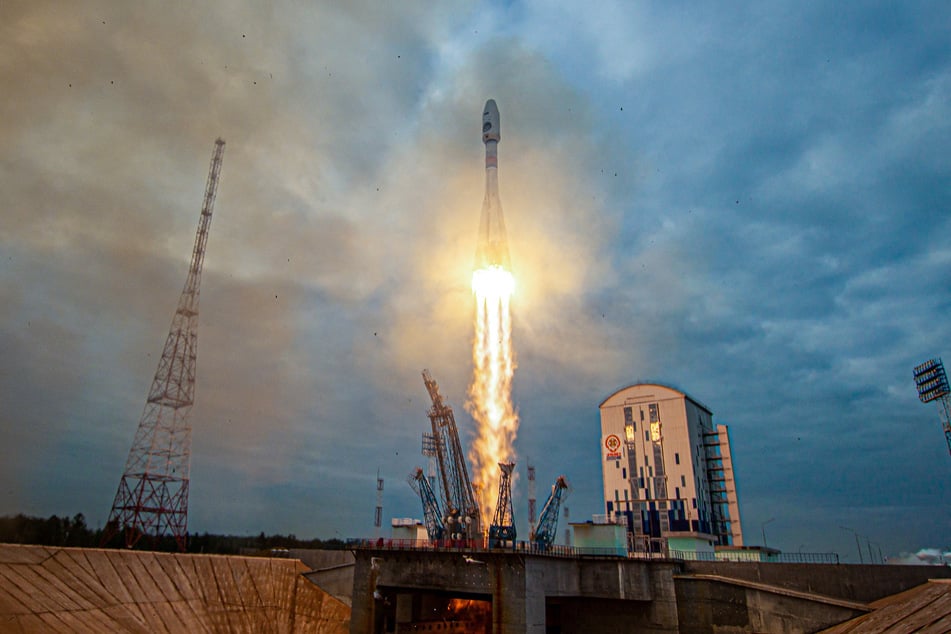Russia successfully launches first moon mission in decades
Uglegorsk, Russia - Russia on Friday launched its Luna-25 space probe to explore the moon, in the first mission of its kind in nearly 50 years.

The Soyuz launch vehicle with the probe on board lifted off from the new Vostochny Cosmodrome at 9:10 AM local time on Friday (7 PM EDT on Thursday), as seen in a livestream broadcast by the Russian space agency Roscosmos.
The probe exited Earth's atmosphere on schedule after a few minutes.
"The launch was successful," Roscosmos chief Yuri Borisov said.
The probe is to land at the lunar South Pole and search for water and collect soil samples.
The travel time to the moon is expected to be four and a half days, though Borisov said the hope is for a soft landing on the moon on August 21, as the first step will be to look for an ideal place for the probe to touch down.
The mission had been postponed several times due to technical problems.
Russian village evacuated ahead of historic launch
Luna-25 is part of the Russian lunar program which envisages the construction of a space station on the Earth's satellite by 2040.
Moscow last sent the probe Luna-24 to the moon in 1976 when Russia was part of the Soviet Union.
Luna-25 is to help develop a technology for soft landings. To do this, it will collect and analyze soil samples from the moon. The planned scientific investigations also include a study of the surface layers in the area of the moon's South Pole as well as its ecosphere.
In Russia's far eastern region of Khabarovsk, authorities announced an evacuation of the village of Shakhtinsky on Friday ahead of the planned launch because the first rocket stage of the Soyuz could come back to Earth there.
Cover photo: via REUTERS